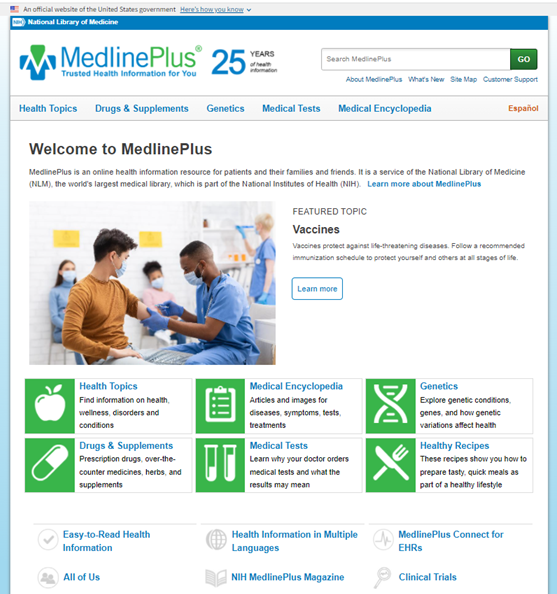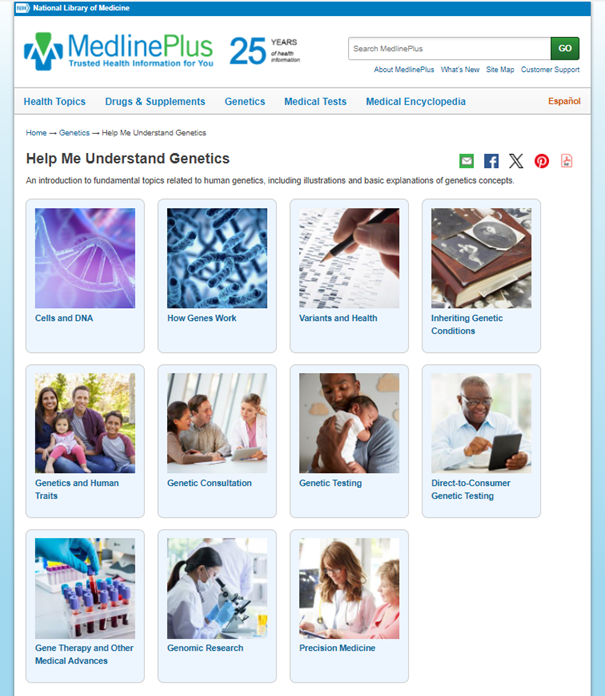In October 2024, the National Library of Medicine (NLM) updated the PubMed Central (PMC) website. Apart from the most obvious change – the URL of the PMC homepage is now pmc.ncbi.nlm.nih.gov – most of these important modernization updates are related to the digital accessibility of the PMC website and designed to ensure its reliability and sustainability into the future.
More specifically, from PubMed Central (PMC) Transitions to Updated Website – NCBI Insights:
“The updated website runs on cloud services to ensure the website’s long-term sustainability and reliability. It also incorporates U.S. Web Design System (USWDS) components and design principles to improve PMC’s readability and accessibility, whether you are visiting on a desktop computer, mobile device, or accessing its content using assistive technology.”
For example, the PMC article display has been tweaked to improve its readability:

See this section of the PMC User Guide to learn more about the key features and functionality available both on the desktop version and mobile version article displays.
To read about the great work NLM is doing to ensure equitable access to its products – see:
The Future of PubMed Central: Publicly Accessible, Digitally Equitable, Universally Valuable – NLM Musings from the Mezzanine
Questions? Ask Us at the MSK Library!




